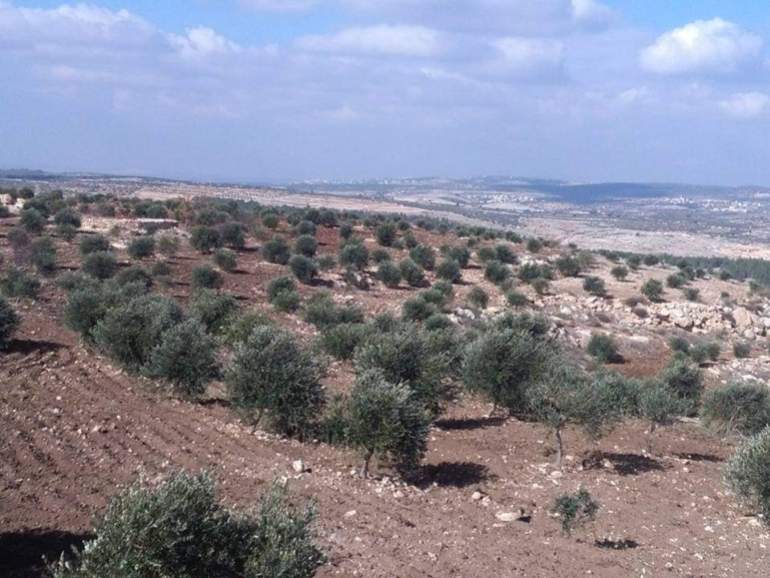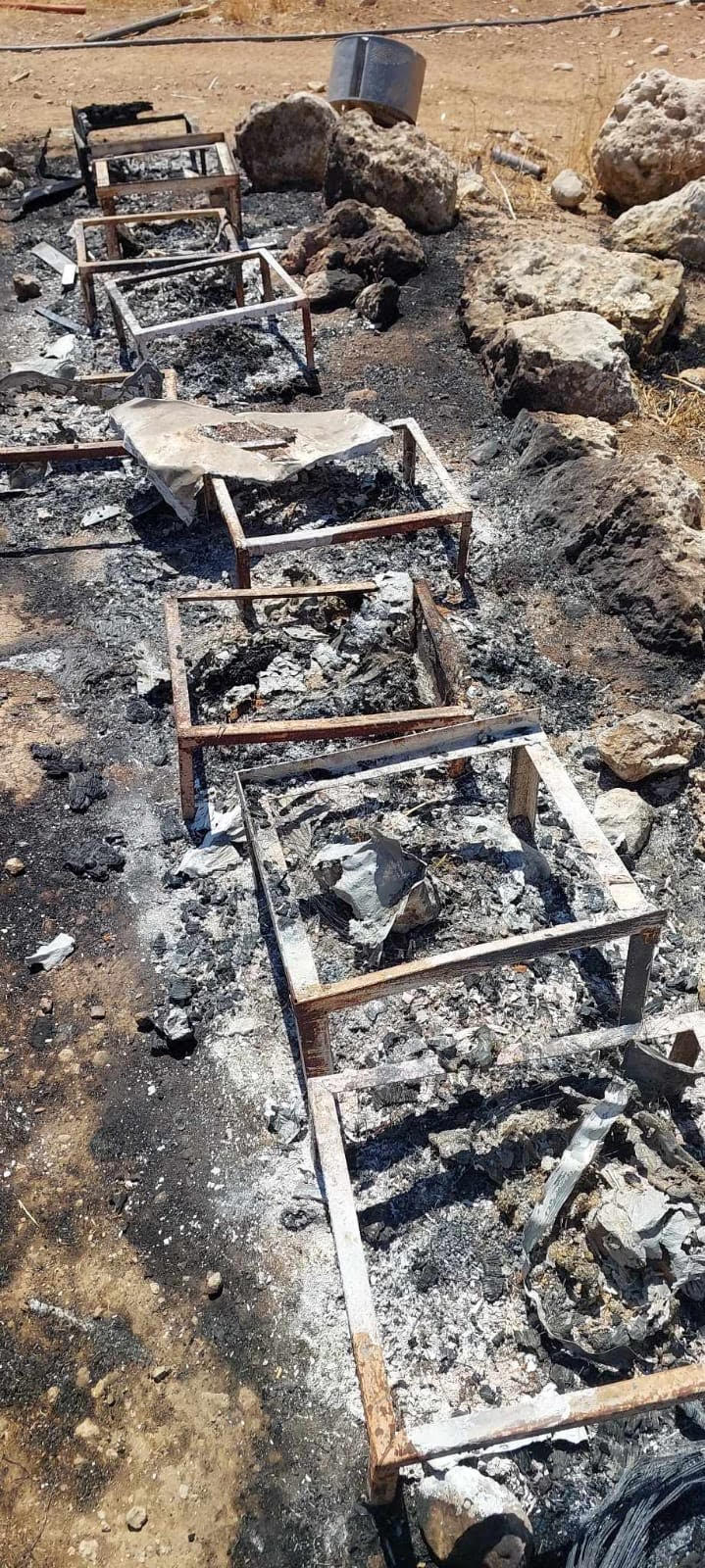Farmers in the occupied West Bank face near-daily incursions and violence from Israeli settlers, to the point that they live in fear of having their homes and land stolen, they say.
Added to that is the violence they witness in nearby urban areas, like Jenin city and refugee camp that the Israeli army stepped up raids on, killing 10 people and wounding 20 in just one week.
According to the Ministry of Health, at least 237 Palestinians have been killed and about 2,850 others injured by Israeli forces in the occupied West Bank since October 7.
Farmer Ayman Assad, 45, and his family can clearly hear the attacks from their home just 2km (1.2 miles) from the camp and they have made the past few weeks a nightmare for him, his wife and five children.
“The children are constantly scared, and they don’t play outside any more, it’s too dangerous,” he told Al Jazeera.
“We can hear the attacks on the refugee camp, explosions and gunshots.”
Assad said his children are no longer going to school because even if they were to brave the route there, the Israeli army is blocking many of the roads in the area. All classes have gone online.
The greatest worry right now is that his chicken farm, which is further away in Area C of the West Bank, will be attacked by Israeli settlers while he is unable to defend it. “I’m scared my land will be stolen.”

Palestine is known for its olives, olive oil and vegetables, which are exported far and wide. The olive trees, in particular, are an important symbol of Palestinians’ attachment to their land.
The West Bank has been occupied by Israel since 1967. Since then, about 700,000 Israeli settlers have illegally settled in the Palestinian territory. and have been stealing from, attacking and destroying olive groves, farmland and property there for years.
But these incursions have stepped up in recent weeks, as Israeli forces and settlers mount armed raids while Palestinians are confined to their homes under curfew, Abbas Milhem, director of the Palestinian Farmers’ Union (PAFU) in Ramallah said. His own family’s farm was among those targeted.
‘A second war is happening in the West Bank’
Just over two weeks ago, armed Israeli settlers invaded the Milhem farm, fired guns in the direction of the people working on the harvest and stole olives.
One of the workers at the farm, Iman Abdallah Jawabri, 45, was harvesting olives in a crew that included her husband when five settlers came in.
“They shot towards us as if they wanted to scare us, then when they came closer, they took our phones to prevent us from taking photos of them. Then they told all the women to leave and started hitting the men, forcing them to sit on the ground under the olive trees.
“We (the women) were still looking at them from afar. After this, they took all of our olives and forced us to leave.”
The farm is now under military control despite being in Area B of the West Bank, where the Palestinian Authority technically controls civilian matters. The Milhems and their workers have been unable to return.
“The farmers are afraid of being shot if they do,” said Iman.
“I have several grandchildren and fear for the future, but I also thank God for what we have and pray for the people of Gaza,” she added.
“There is a second war in Palestine which is happening in the occupied West Bank,” said Milhem. “It is also crucial to understand how it affects farmers in the occupied West Bank.”
He added that he cannot travel to visit his ageing mother in Jenin because Israeli forces have blocked many of the roads.
“I am also afraid when my sons go out at night, and I call them constantly to see if they are OK,” he said.

‘They have guns – I only have my hands’
According to Human Rights Watch, Israeli security forces have killed more Palestinians in the occupied West Bank between January 1 and October 6 this year than in any year since 2005, when the United Nations began recording fatalities. This has raised Palestinian fears for their safety and the safety of their families, in addition to their fears for their livelihoods.
Being unable to move around the West Bank to work since October 7 due to the vastly increased raids and curfews by Israeli forces and armed settlers means Palestinians are facing a crisis.
According to the UN, poverty has increased by 20 percent and gross domestic product declined by 4.2 percent since October 7.
Milhem said exports have completely stopped and nearly 50 percent of olives have not been harvested because of restrictions by the Israeli army on Palestinians’ movement.
Another Palestinian farmer, Salah Awwad, 28, lost his home and land in Wadi Tahta in the south of the occupied West Bank in August. Settlers invaded his land, poured benzene around his property and set it on fire, destroying his beehives.
They took over the land and Awwad was forced to flee with his family of eight children. After a few days, he said, he was able to retrieve his 100 sheep, but he can no longer return to the land.
Since October 7, conditions at his new home in Sha’ab Tariq, 9km (5.6 miles) away, have worsened and now his livelihood is in the balance: he is not allowed to let his sheep graze, he told Al Jazeera.
“The settlers are surrounding my home, and they are not letting me work,” he said. “I am afraid I might be shot, as they carry guns. What can I do? They have their weapons; I only have my hands.”
Awwad added that, while life was difficult before the war began, prices have now risen sharply, particularly for farmers. The price of fodder for his sheep has risen by more than one-third since October 7.
“No one is looking at us, only God,” he said. “But I will not move again, even if they try to force me.”









